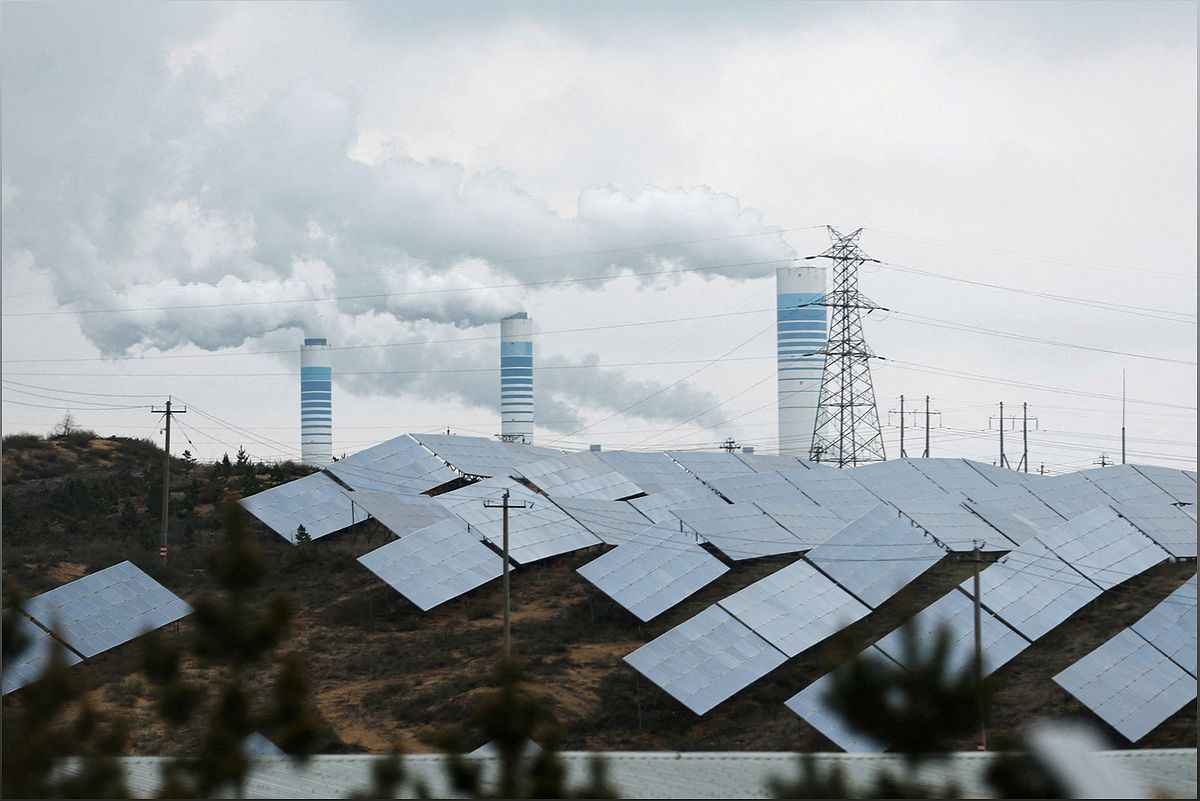In recent years, Asia has been making significant strides in clean electricity production, surpassing both Europe and North America. This trend highlights the region's resistance to Western pressure to limit coal-fired power. While the importance of clean energy in reducing carbon emissions and combating climate change is widely acknowledged, countries like China and India have not fully supported global efforts to triple renewable energy capacity by 2030. Their argument centers around the need to meet their growing power demands. Despite facing higher financing costs and limited access to funds, Asia has made remarkable progress in fighting climate change since the Paris climate agreement in 2015. The region has seen a substantial increase in clean energy generation, including hydro and nuclear power, outpacing both Europe and North America. Over the years, Asia's share of clean energy in its power mix has risen by 8 percentage points to 32%, while Europe's share increased by over 4 percentage points to 55%, and North America's share climbed by more than 6 percentage points to 46%. Additionally, Asia has successfully reduced the share of fossil fuels in power generation by 8 percentage points to 68% in 2022, surpassing Europe and North America in abating gas and coal use. However, it is important to note that Asia still accounts for three-fifths of global emissions from power generation, and its emissions are projected to continue rising due to the region's rapid growth in electricity demand. Asian governments argue that wealthier nations should assist them in reducing emissions, considering their higher per capita emissions and historical reliance on fossil fuels. Western countries, on the other hand, have been hesitant to fund the early retirement of polluting plants in Indonesia, despite their commitments to support the country's decarbonization efforts. The West has faced challenges in scaling up renewable energy and storage, partly due to delays in project approvals and grid interconnections. Some Western nations are shifting their focus from coal to natural gas as a transition fuel, but Asia's share of gas in power generation is actually decreasing, while Europe and North America are increasing their use of gas. The West's progress in reducing emissions has been hindered by the decline in nuclear power, whereas Asia's reliance on nuclear energy remains relatively low. India, the world's second-largest coal user, advocates for a phasedown of all fossil fuels rather than singling out coal. It also emphasizes the need for increased investment in energy storage to support the growth of renewable energy. As Asia continues its rapid transition to cleaner energy sources, it presents a challenge to Western influence and calls for a collaborative approach to address the global climate crisis.
Asia's Resistance to Western Push for Coal Reduction
Understanding why Asian nations are hesitant to limit private financing for coal-fired power
While there is a global consensus on the importance of increasing clean power to reduce carbon emissions and combat climate change, Asian nations such as China and India have not fully supported recent pledges to triple the world's renewable energy capacity by 2030. This sub heading will explore the reasons behind Asia's resistance to the Western push for coal reduction.
Despite the global shift towards clean energy, Asian countries argue that fossil fuels are still necessary to meet their rapidly growing power demands. They emphasize their higher per capita emissions and historical reliance on fossil fuels, calling for assistance from wealthier nations in reducing emissions. This sub heading will delve into the complexities of Asia's position and its implications for global climate efforts.
Asia's Rapid Progress in Clean Energy Generation
Examining Asia's remarkable increase in clean energy production compared to Europe and North America
Since the Paris climate agreement in 2015, Asia has made significant strides in clean energy generation, outpacing both Europe and North America. The region has seen a substantial increase in the share of clean energy, including hydro and nuclear power, in its overall power mix. This sub heading will explore the specific factors contributing to Asia's rapid progress in clean energy generation.
Asia's share of clean energy in its power mix has risen by 8 percentage points to 32%, surpassing Europe's increase of over 4 percentage points to 55% and North America's increase of more than 6 percentage points to 46%. This sub heading will highlight the initiatives and policies that have propelled Asia's clean energy growth, as well as the challenges it has faced along the way.
Asia's Reduction in Fossil Fuel Use
Analyzing Asia's success in reducing the share of fossil fuels in power generation
Asia has not only increased its clean energy generation but has also successfully reduced the share of fossil fuels in power generation. This sub heading will delve into the strategies and measures employed by Asian countries to achieve this significant reduction.
Between 2015 and 2022, Asia managed to decrease the share of fossil fuels in power generation by 8 percentage points to 68%, surpassing both Europe and North America in abating gas and coal use. This sub heading will explore the specific actions taken by Asian nations to transition away from fossil fuels and the impact it has had on their energy landscape.
Challenges and Opportunities for Asia's Clean Energy Transition
Examining the hurdles and potential for Asia's continued shift towards clean energy
While Asia has made significant progress in clean energy generation, there are still challenges and opportunities that lie ahead. This sub heading will discuss the obstacles faced by Asian countries in their transition to clean energy and the potential for further growth.
One of the major challenges is Asia's fast-growing electricity demand, which is expected to contribute to rising emissions in the region. Additionally, financing costs and limited access to funds pose hurdles to scaling up clean energy projects. This sub heading will also explore the opportunities for collaboration and innovation in Asia's clean energy sector, as well as the role of international support in overcoming challenges.

